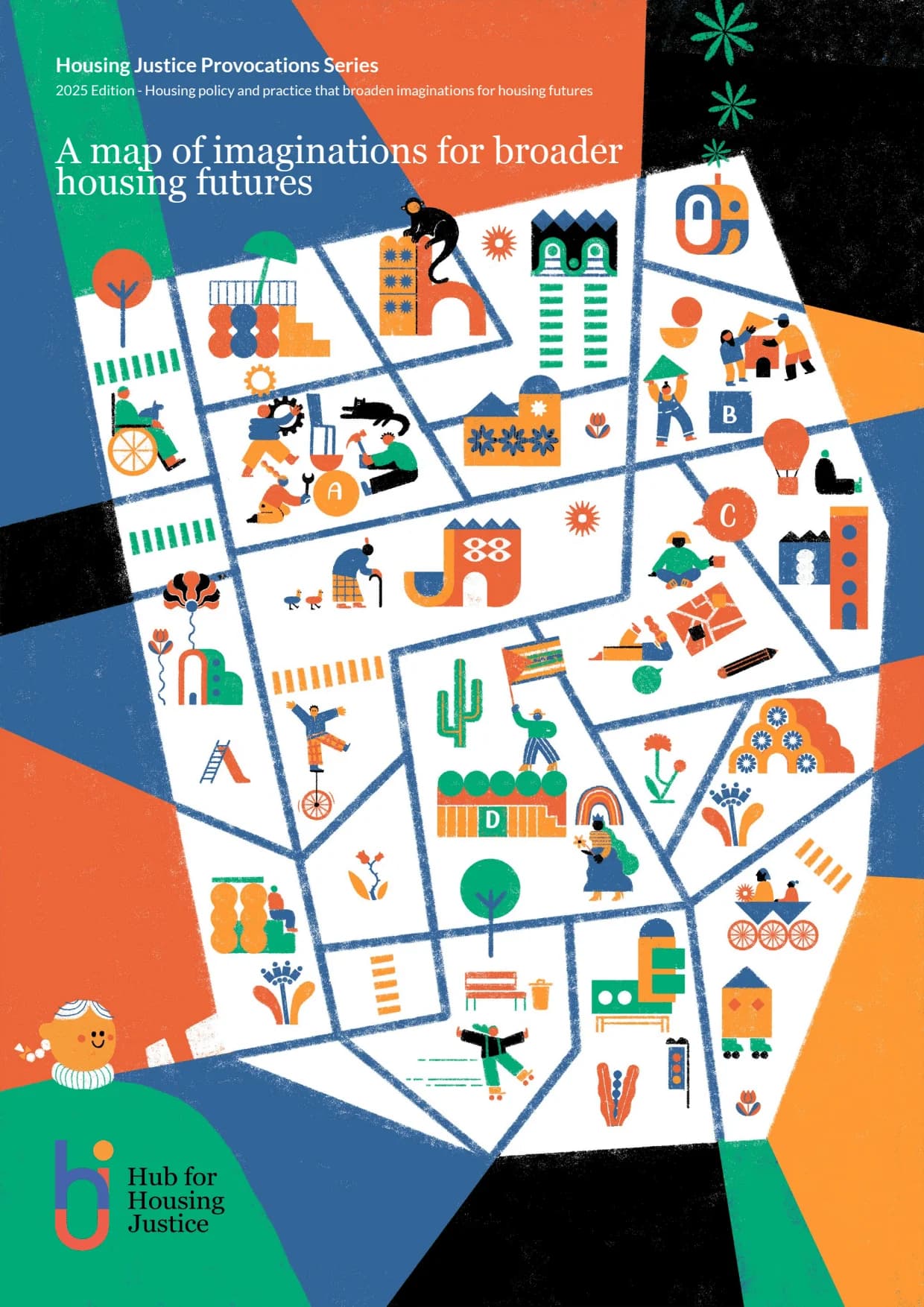AI-Generated Summary
The Hub for Housing Justice, a collaborative initiative led by various civil society networks and research organizations, has published a document titled "A map of imaginations for broader housing futures." The publication, authored by a diverse group of experts from institutions such as the University of Sheffield and the International Institute for Environment and Development, aims to broaden the discourse around sustainable housing practices and policies.
Context of Housing Futures
The document discusses the prevailing urban visions that dominate the concept of housing futures, highlighting two contrasting imaginaries. The first is the “global city” narrative, characterized by neoliberal ideologies and significant private investment focused on luxury and high-end developments. This vision, while appealing to an elite class, often marginalizes the urban poor by sanitizing and expelling them from these developments. The second narrative portrays dystopian landscapes as a result of climate inaction, resource commodification, and increasing inequalities.
Alternative Pathways to Housing Futures
The document proposes an alternative map for housing futures, focusing on four key pathways: 1. Repairing: This pathway includes initiatives that challenge the impact of intersecting crises on housing futures. Examples include squatting, preserving indigenous knowledge, upgrading existing structures, and forming solidarity networks that address social and environmental risks. 2. Collectivising: Here, practices aim to counteract market-oriented housing models based solely on individual ownership. Initiatives include cooperatives, community land trusts, and other models prioritizing social value over profit. 3. Co-producing Knowledge: This pathway emphasizes community-driven knowledge production as a means to contest the commodification of data and exclusionary smart city frameworks. Examples include collective mapping and civic media production, focusing on the urban majority's knowledge. 4. Queering Spatial Arrangements: This approach highlights initiatives that challenge patriarchal and heteronormative housing structures. Examples include queer housing projects and cooperatives designed for the elderly.
Key Initiatives and Practices
The document outlines various initiatives that exemplify these pathways. For instance, the occupation of abandoned buildings in Lagos, Nigeria, showcases grassroots movements that repurpose these spaces for low-income housing, thus contesting mainstream narratives of despair and violence in urban environments. In Italy, radical housing practices restore social value to land, prioritizing community well-being over real estate profit. Initiatives like “Space of Mutual Aid” and “Spin Time Labs” demonstrate how social movements can reclaim public assets for community use. In South Africa, Housing Support Centres (HSCs) facilitate community-driven housing initiatives by providing organizational and technical assistance, thus enabling residents to build their homes collectively.
Community-Led Data and Planning
The document also emphasizes the importance of community-led data initiatives, such as the “Know Your City” campaign, which collects essential information from informal settlements to inform better housing policies. This approach challenges conventional data narratives that often overlook marginalized communities. Similarly, the Community Action Area Planning (CAAP) initiative in Freetown, Sierra Leone, empowers residents to actively participate in housing planning, ensuring their voices and needs are integrated into decision-making processes.
Innovative Housing Models
Examples of innovative housing models include Oak Lawn Place in Dallas, a housing project for LGBTQIA+ seniors that addresses the unique needs of this demographic while challenging traditional family structures. Another initiative, Carpe Diem, is a cooperative designed by women to provide a supportive environment for seniors, focusing on mutual aid and community care. The document serves as an invitation to imagine and create sustainable housing futures that are inclusive, diverse, and responsive to the needs of all community members, ultimately aiming for a more equitable society.
